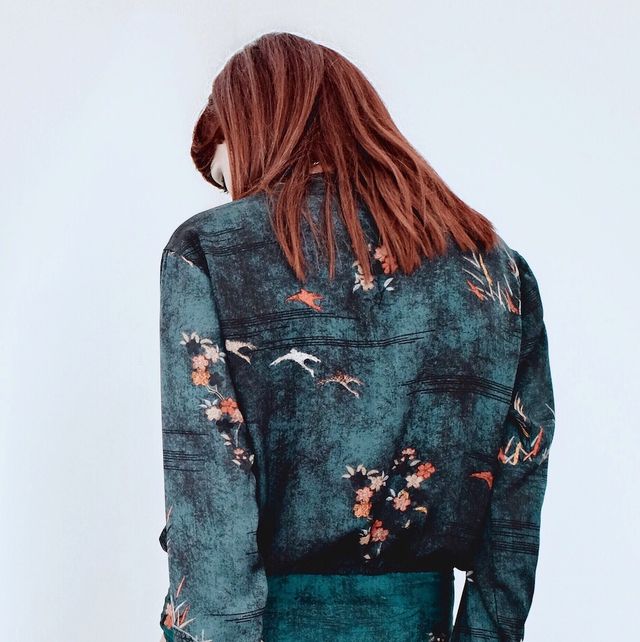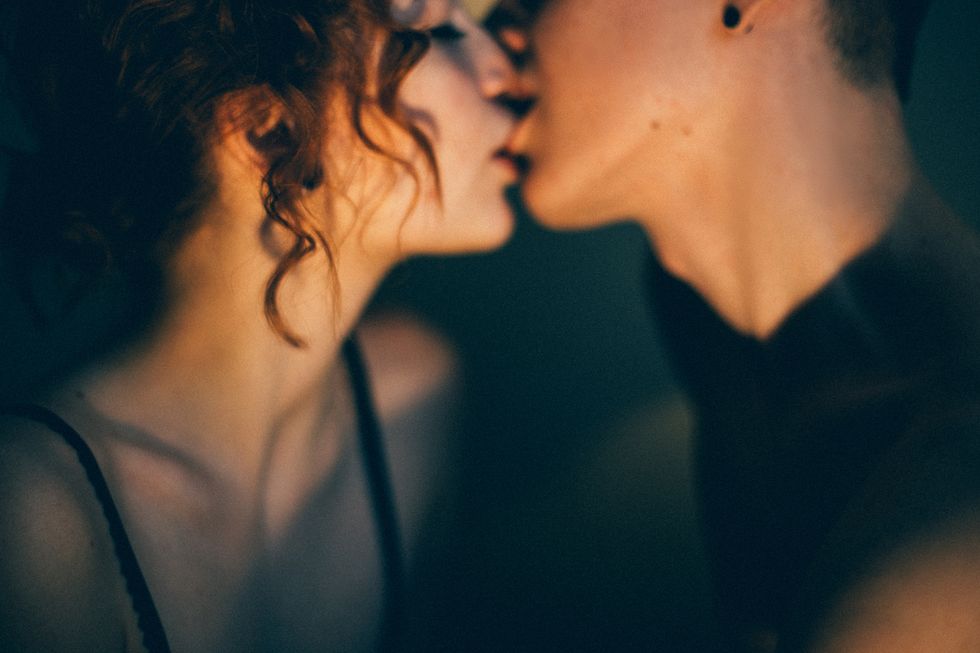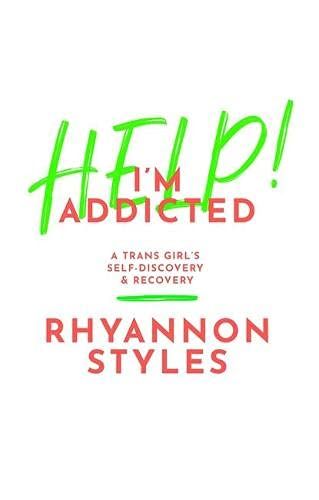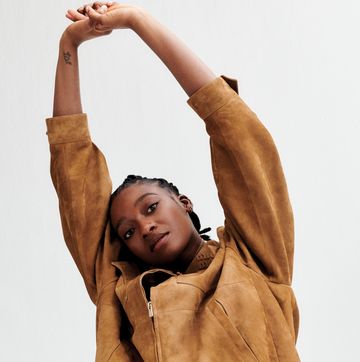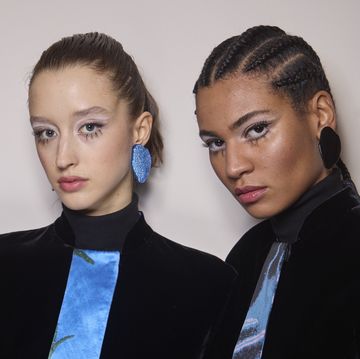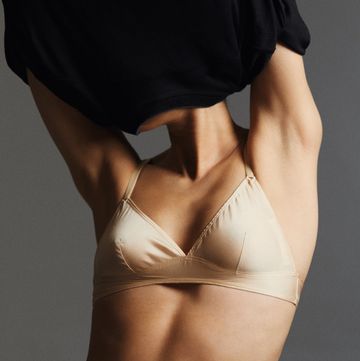I’m perched awkwardly at the foot of my bed, illuminated by the glow of my laptop and a lava lamp in the far corner of my bedroom. I’m logged into my favourite website, the one I spend every night with now, just like a friend or a comfort blanket. I fire off another message to the guy who said he’d arrive by 10.30pm. He’s online, but 40 minutes late. I have no idea where he is. He knows to message me when he’s outside - I don’t want him to ring the doorbell and disturb my housemates. I’ll have to sneak him inside and pretend he’s a friend if anyone catches us half-way up the stairs, even though I don’t know his name. Hopefully he doesn’t bring any beers or wine – he doesn’t know I’m a recovering alcoholic yet.
At his request, I’ve re-applied a full face of make-up, despite having already gotten ready for bed. I’m trembling with nervous energy. The cheap lingerie set I’m wearing is scratching my legs and belly, making me feel extra itchy. Wearing high heels at this point seems ridiculous, but I am.
A surge of adrenaline ripples through my body when I’m messaging strangers online and, for a brief moment, leaves me breathless. Quick-fire texts responding to my semi naked profile pic litter my inbox and make me feel high. It’s not dissimilar to the feeling I’d get after doing bumps of Ketamine off a key. Every night recently I find myself fixated on my phone’s screen, unable to turn away, trying to find a flicker of connection amid the faceless pics of online men, with names like ‘curious_man’ and ‘Only4fem ’ waiting to be seen.
This was in early 2015, when I was close to being three years sober. I’d addressed my constant thirst for alcohol and need to binge on drugs every weekend by attending Alcoholics Anonymous (AA) meetings. I’d chosen abstinence, worked through 10 of the 12 steps and identified two key components of my addiction: self-centred fear and shame. When used excessively, alcohol and drugs removed any feelings of self-hatred for me, because I obliterated any sense of reality. That was the point. But knowing I was an addict didn’t stop me from continually placing my wellbeing and safety in the hands of others and I was always looking for new ways to act out and live dangerously. I thrived on it. Where once I had used alcohol to achieve this sense of reckless abandon, I could now abandon myself by spending hours online, constantly messaging guys or inviting strangers into my home. It was thrilling.
Dating sites provided a platform for me and many other trans women to find people who were attracted to us, without the need to laboriously explain we were trans. We were admired and celebrated for our decision to transition and to live in our truth. The majority of people who used the site did so from a place of wholeness and self-empowerment. Friends who also used these sites spoke of healthy interactions and were able to establish clear boundaries. For me though, this continuous stream of praise and validity quickly became addictive and dysfunctional.
As a transgender woman in early transition, I had craved external validation from cis-men to fill the gaping hole of love and self-acceptance I felt within myself. I continually allowed these flirtations to reinforce my own womanhood by seeking unavailable people to provide my self-worth where society couldn’t. I knew I was being infantilised, objectified and fetishised through these fleeting encounters, but where else was I being validated?
Like many trans and gay kids of my generation who’d grown up with Section 28 - a series of laws across the UK that prohibited the promotion of homosexuality and all LGBT+ topics in schools from 1988 through to 2000 - I had wounds. During my youth, I’d internalised huge amounts of shame, knowing that my womanhood was invalid and that my tendency to lean towards femininity was wrong. The people who bullied me at school and my wider community also knew this.
To escape this pain, I buried myself in one addiction after another; food, sugar, alcohol, drugs, relationships, compulsive spending, porn, exercise and more recently sexual hook-ups. It became clear to me that like all my earlier addictions, casual sex was not bringing positivity into my life. Quite the opposite, it stripped away my shine of sobriety. I felt guilt, fear and shame. I was back to square one and I resented myself once again. I’d heard people in my recovery groups talk about SLAA (sex and love addiction). I wondered if my recent activity meant I would qualify.
The first time I entered an SLAA meeting I felt a huge sense of relief. It was finally the place where I could talk about all the problematic behaviour that had recently caused me to feel awful about myself. Situated in a local church hall, I felt an immediate kinship with the other attendees. It was similar to the experience of AA, but for me much deeper. Hearing other people share about their own traumatic experiences and dysfunctional relationships with people was illuminating and comforting. Knowing I was in a safe space to speak honestly took away my own shame. It allowed me to let go.
Over the next few years, I began nurturing a healthier relationship with myself by establishing clear boundaries in all of my relationships. I drew a line under my risky behaviour and for the first time in my life gave myself the opportunity to heal. I looked beyond the stream of unavailable men for esteem, and started helping others who were new into the SLAA programme. I created a community around me which I valued and I no longer spent vast amounts of time alone being unproductive. I elevated my self-worth by realising I was a person who deserved better. I looked at my pain straight on and walked into it instead of around it. Testament to this programme of growth, I was able to meet a man who became my partner for six years. An accomplishment that would never have happened if I’d continued to allow my trauma to consume me.
Today I’m clean from all my addictions and I manage my life without the necessity to lose myself like I did it the past. Finally, I feel free.
‘Help! I’m Addicted; A Trans Girls Self-Discovery and Recovery’ by Rhyannon Styles is out now.
